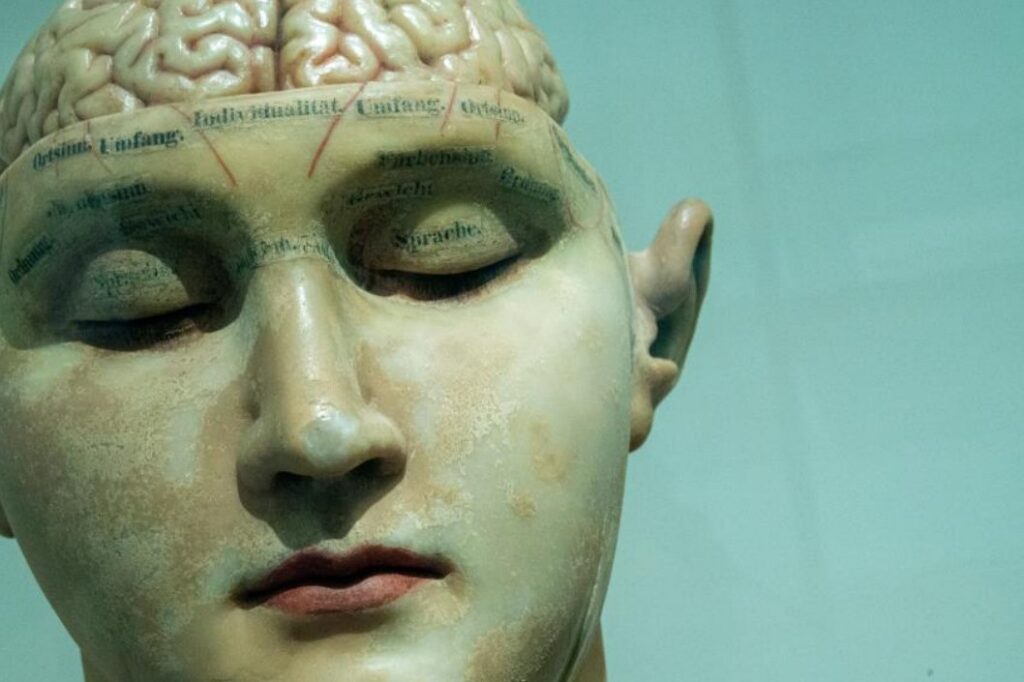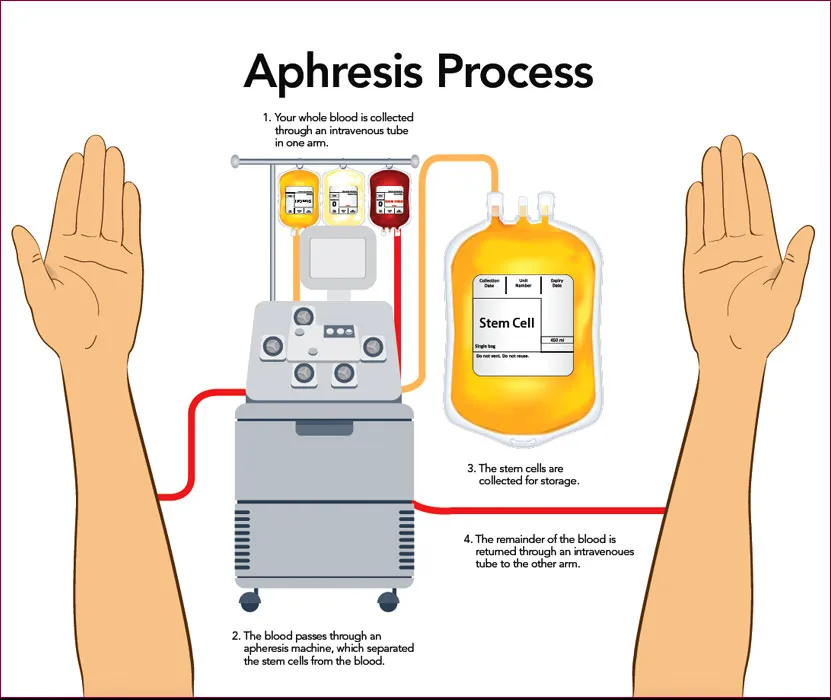Alzheimer’s and the APOE E4 Gene: How Genetics, Immunity, and Lifestyle Shape Your Brain Health
Alzheimer’s and the APOE E4 Gene: How Genetics, Immunity, and Lifestyle Shape Your Brain Health
By Dipnarine Maharaj MD, FACP

Photo Courtesy of Barry King/Alamy
September is World Alzheimer’s Month, a global campaign to raise awareness and challenge the stigma surrounding Alzheimer’s disease and other forms of dementia. It’s a time when organizations worldwide unite to educate the public, encourage support for those affected, and advocate for policy changes related to dementia, a disease that affects approximately 55 million people globally. The international awareness efforts through the month of September culminates in World Alzheimer’s Day on September 21st, encouraging people to learn about dementia and show support for those affected. Alzheimer’s disease is often viewed through the lens of memory loss and cognitive decline. At the heart of the disease lies a complex interplay of genetics, inflammation, and immune dysfunction—one that may hold the key to prevention and treatment. APOE E4 is the gene variant that looms large in this story, dramatically raising the odds of Alzheimer’s. But why does this happen, and what role does the immune system play?
The Risk Factor
The Apolipoprotein E (APOE E4) gene comes in three major variants: APOE E2, APOE E3, and APOE E4. Most people carry APOE E3, which is considered neutral. APOE E2 may offer some protection. But APOE E4 is the outlier—carried by roughly 15-20 % of the population, yet responsible for up to 50% of Alzheimer’s cases.
Individuals with one copy of APOE E4 have a 2–3x increased risk and it is the strongest genetic risk factor of late-onset Alzheimer’s disease. Although the APOE E4 gene variant was identified in 1993, the mechanism by which it increases Alzheimer’s risk has remained elusive for the past three decades.
Now, a study published in Nature Medicine by Shvetcov and colleagues offers a new piece of the answer: the APOE E4 gene puts the body’s immune system into overdrive. By analyzing thousands of blood and spinal fluid samples, researchers found that people with the APOE E4 gene have higher levels of inflammation. Their immune system shows more activity from T cells, monocytes, and natural
killer cells. When these cells are too numerous or too active, the immune system is like an alarm that never shuts off. In the brain, this persistent “overdrive” causes inflammation that can harm neurons and accelerate Alzheimer’s disease. This finding reshapes our understanding for how the APOE E4 allele increases the risk of neurodegenerative disease.
Individuals who inherit two copies of the APOE E4 gene face a 10–15 times higher risk of developing Alzheimer’s. Roughly one in 50 people inherit two copies, and research has shown that nearly all double carriers exhibit early signs of the disease that can lead to dementia by the age of 55. The real-life implications of this risk hit home for actor Chris Hemsworth, who has spoken about how learning he carried the gene was a “gear shift” in his life, reshaping his motivations and priorities.
During a genetic test on season one of National Geographic’s Limitless: Live Better Now, Australian actor Chris Hemsworth discovered that he carries two copies of the APOE E4 gene, making him biologically more likely than most to develop Alzheimer’s disease in his lifetime. Hemsworth had initially joined the show as its “guinea pig,” eager to take on new experiences that would challenge
both his body and mind.
After taking the test, the 41-year-old Thor and Furiosa star was confronted with a surprising truth: everyone’s risk of Alzheimer’s is different. Evidence suggests there are things you can do to reduce your risk whether you’re a carrier of the gene or not, which includes not smoking, reducing alcohol intake, daily exercise, monitoring cholesterol and blood pressure and eating a balanced diet.

Photo Courtesy of Unsplash
Hemsworth opened up about how the revelation changed his perspective on life, saying, “It was just kind of this point in my life where up until your 40s, you’re kind of gathering data and information and it’s all reactionary, and then you get to a point where you think, oh, some of this sort of identity that I’ve sort of built doesn’t hold true.”
His personal insight reflects an underlying truth about how this gene affects the body. APOE E4 doesn’t just affect the brain—it also alters how the immune system responds to stress, injury, and aging, revealing why carriers may face higher risks and how lifestyle and health interventions can play a crucial role.
The Hidden Driver: Inflammation
People with the APOE E4 gene often have more inflammation in their brains, even before they notice any memory or thinking problems. It’s like their brain’s immune system is already on high alert, which can make it easier for Alzheimer’s disease to develop later. Microglia, the brain’s own immune cells, get overactive and release chemicals that cause inflammation. This can hurt brain cells and interfere with how they communicate, making memory and thinking worse over time. This chronic inflammation accelerates the buildup of amyloid plaques and tau tangles, the hallmarks of Alzheimer’s-related brain changes.
Immune dysfunction isn’t just limited to the brain. Studies show that APOE E4 is associated with systemic immune changes: increased oxidative stress, impaired lipid metabolism, and reduced ability to clear cellular debris. In other words, the body’s cleanup crew goes on strike, allowing waste to accumulate and normal repair processes to falter.
A Gradual Decline
As we get older, our immune system slowly weakens and becomes less flexible. It gets ‘tired ’and doesn’t respond as well to threats as it used to. APOE E4 seems to accelerate this process, leading to a buildup of terminally differentiated T cells, reduced regulatory control, and a pro-inflammatory state known as “inflammaging.”
An immune imbalance doesn’t just affect cognition—it increases vulnerability to infections, impairs recovery from illness, and may contribute to other age-related diseases like cardiovascular disease and cancer.
A New Frontier
Alzheimer’s remains largely incurable. However, at the Maharaj Institute, we are investigating therapies aimed at restoring immune balance in aging populations, particularly for those with genetic risk factors—like the APOE E4 variant carried by Chris Hemsworth. One promising approach is G-CSF–Mobilized Young Donor Plasma (GMFFP), an acellular therapy derived from young donors whose immune systems are activated via stem cell mobilization. This plasma contains a rich secretome of cytokines, growth factors, and exosomes that may help reverse immune collapse and reduce inflammation.
For APOE E4 carriers, immune rejuvenation offers a profound opportunity to change the trajectory of the disease—slowing cognitive decline, improving resilience, and potentially delaying the onset of Alzheimer’s disease.

Photo courtesy of Unsplash
If you carry the APOE E4 gene (which can be tested via saliva or blood), it’s not a guarantee of disease—but it is a call to action. Lifestyle interventions like exercise, sleep, and anti-inflammatory nutrition are powerful tools. But so is early immune monitoring, stem cell banking, and participation in clinical trials that target the root causes of aging.
Alzheimer’s is a neurological disease, an immune disease, a metabolic disease— and above all, a disease of resilience. With the right tools, you can change the story from inevitability to intervention.
Please call Dr. Maharaj at 561-752-5522. https://maharajinstitute.com/ to see how he and his team can help you measure and maintain your healthy immune system as well as to test and measure your inflammation. These are non-invasive tests that will provide a clear picture of where your immune health lies, and should it reflect abnormalities, we have the resources to help correct them. We look forward to hearing from you at the Maharaj Institute in Boynton Beach, Florida at 561-752-5522 or info@bmscti.org. Visit us at https://maharajinstitute.com
Request An Appointment
Please fill out the form to request an appointment. We will contact you shortly to confirm the exact day/time.



